A Margarita with the Master
He walks among us
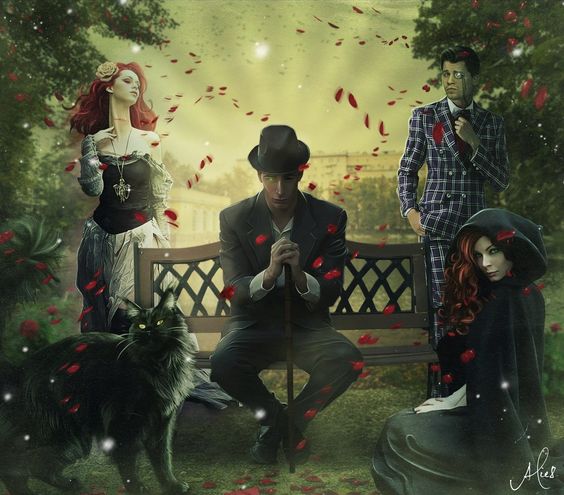
Let us walk through a scenario: Consider a person, let's call him A, who wreaks havoc among people, and even, sometimes, goes so far as to kill. We will surely consider A as evil. But what if I say, the people, he creates problems for, are evil. They are selfish hypocrites, who would do anything to get what they want. Would you still consider A as evil? He is, after all, punishing those who deserve it. Still no? What if I say that it is his duty to punish people? It is a task set to him to carry out the justice and punish people for their misdeeds, sometimes even with death. Will that make A not evil? He is doing his duty, his God-given task on Earth.
I was considering the above scenario after I recently finished reading Master and Margarita. I came to the conclusion that A is not evil. He is here to set the balance and carry out his obligations. If you haven't guessed already, A is the Devil. For so long, I have perceived that the Devil was evil. He is the King of Hell, the place where all evil people are sent to. But aren't people tortured in Hell for their misdeeds? Then why do we consider the Devil a bad guy? He is handing out punishments not hanging out with them.
"Damn you!", "Go To Hell", "Devil take you" are phrases, or more appropriately, curses, that we use when we feel wronged by a person. I do not justify the use of the curse. However, I ask you to ponder of the situation that makes you use it, of the entity who you call to punish the wrong-doer.
I have been very rough with my explanation, but I would recommend Master and Margarita to you for a more elegant portrayal by Mikhail Bulgakov. Through the story, he has shown the tricks of the Devil and slowly changes your perception of him.

Master and Margarita was recommended to me by one of my friends from Russian class. She knew that I really loved Fantasy novels and thought that this book would be right up my avenue because it had the devil and his retinue in it. I started reading the book and was surprised to find that it was less fantasy, more satire. I found it hard to get into the flow of the book initially because of the complex sentences and the time for the build up but Bulgakov sets the scene up perfectly and leaves a lasting impact.
It took me some time to get with the flow of the books and I kept getting the characters confused at first, but soon, I found them sinking into my memory. Prof. Woland and his companions, the monocle wearing, Korovyev, the unusually large cat on two legs, Behemoth, the naked red haired vampire maid, Hella, and the one sharp-toothed assassin, Azazello.
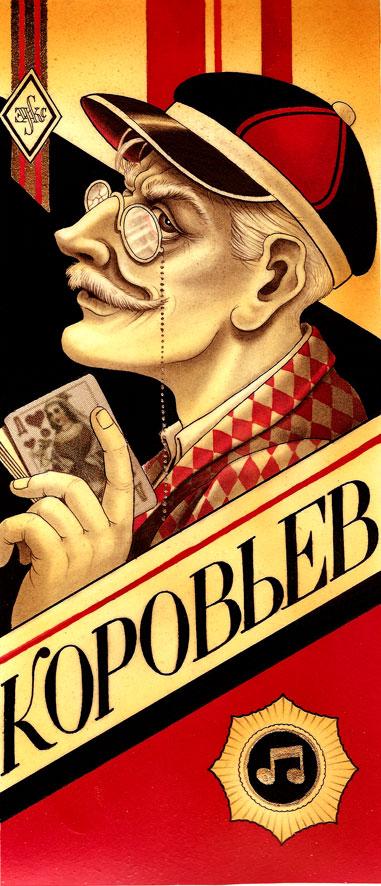
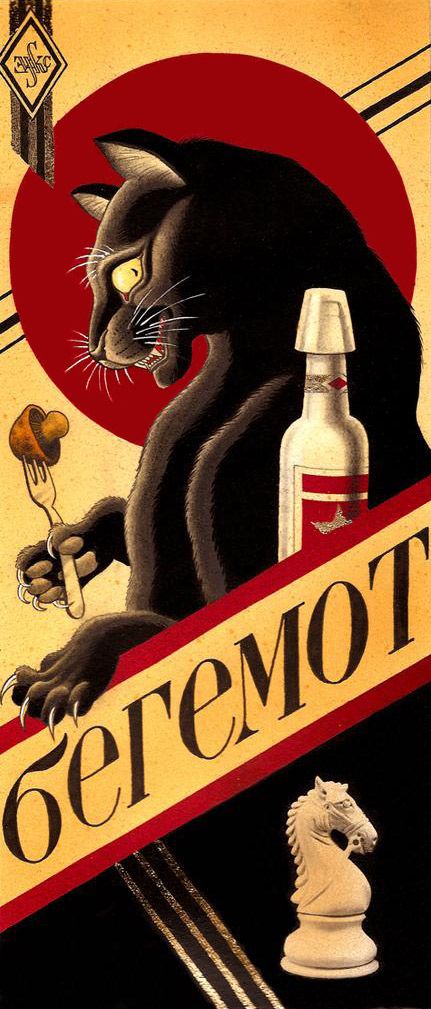
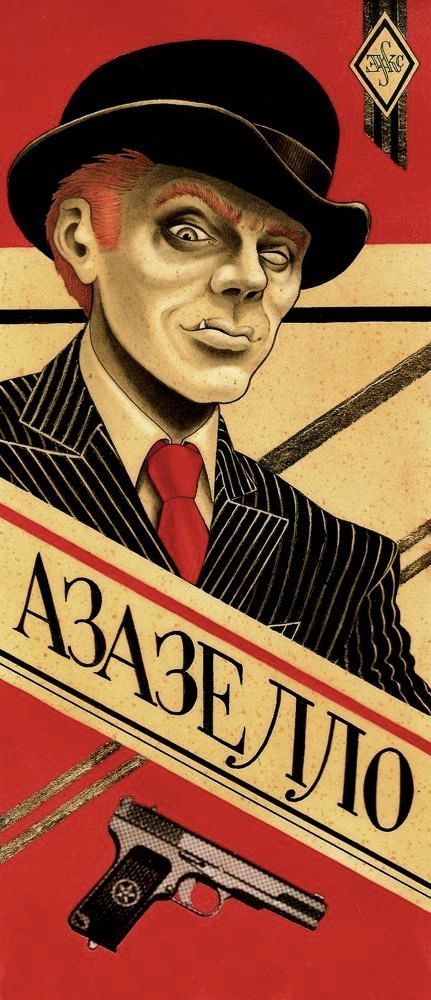
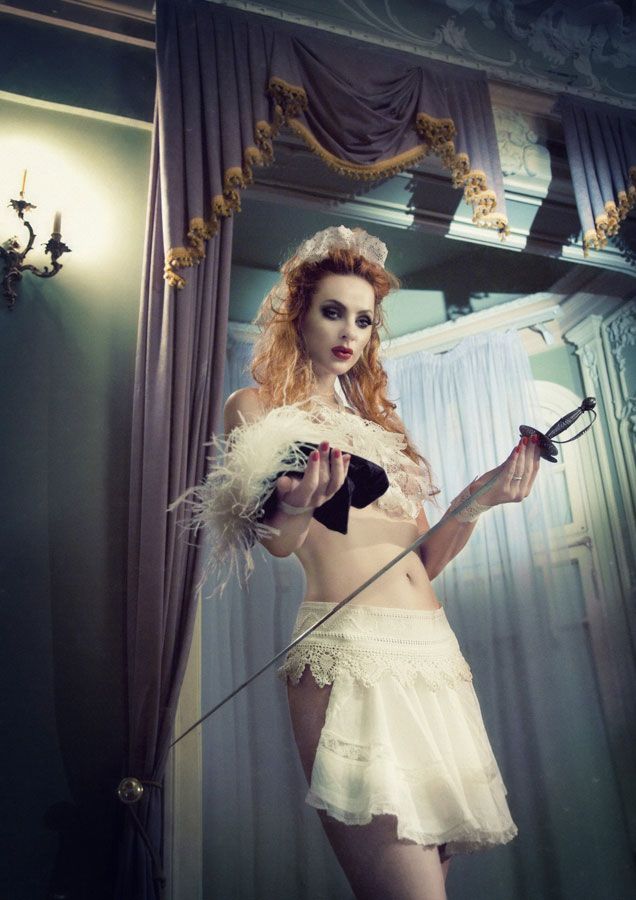
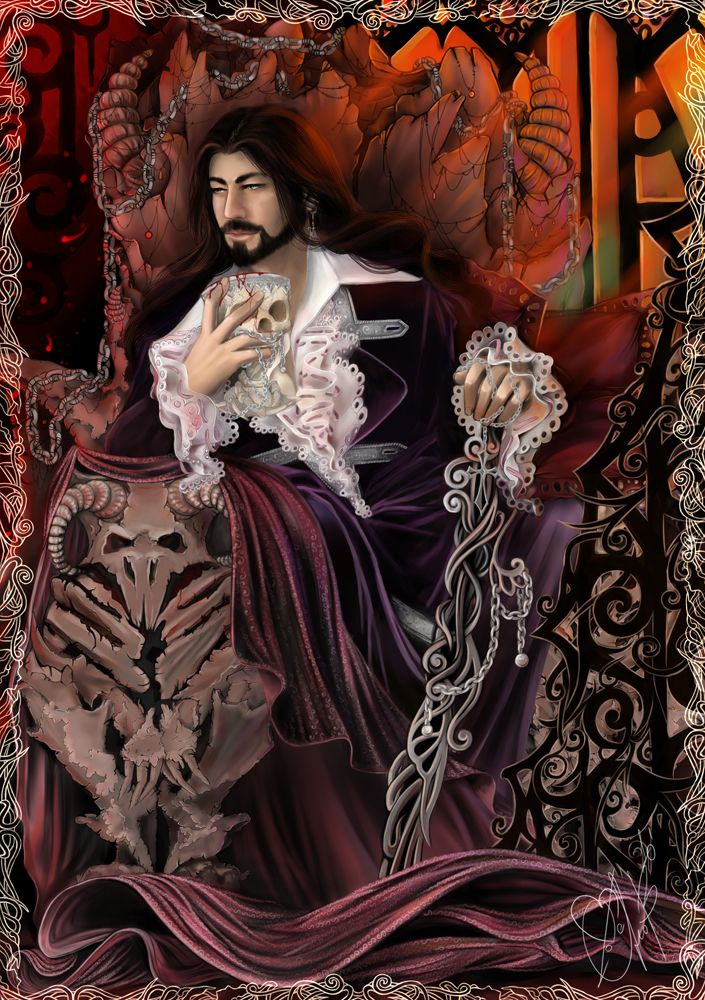
The novel starts out with the Berlioz and the poet, Ivan Bezdomny, out on a warm summer evening by a lake discussing a recent poem about Jesus that Bezdomny had written. Berlioz explains to him that denying the existence of Christ is much more accurate than acknowledging it in any form even if it is to insult. Their conversation is overheard by a mysterious stranger, who introduces himself as Prof. Woland and proceeds to tell the story of Pontius Pilate and Yeshua.
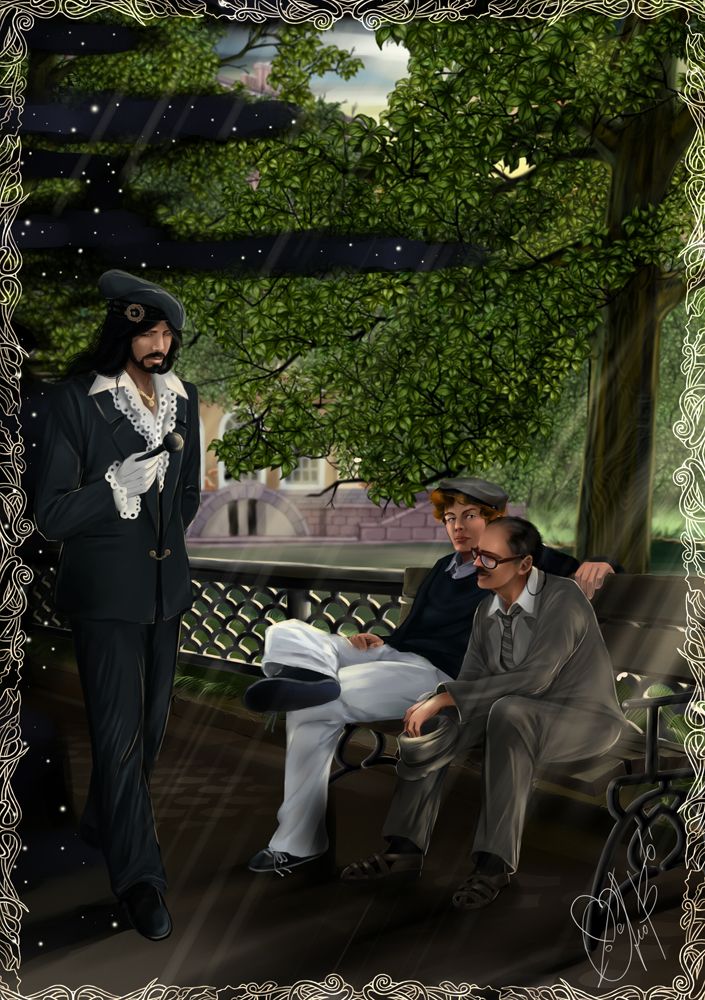
I knew that this seemed an important reference that I was missing, which I quickly found out was the story of the trial of Jesus and the official, who passed the judgement.
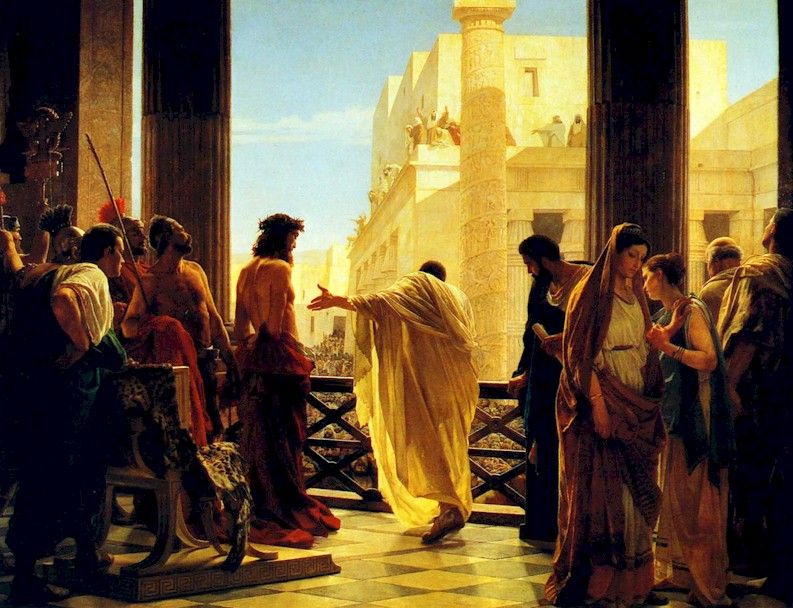
Soon after, Woland predicts the circumstances of the death of Berlioz and when it happens exactly as he said, Bezdomny tries to confront him but is given the slip by Woland, who is now joined by a haggard looking man and an oversized cat.
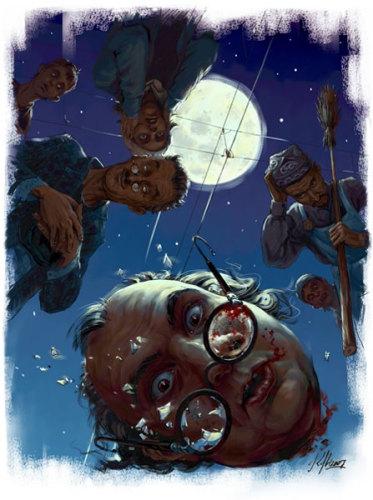
After trying to chase and catch up to Woland, during which he loses his clothes, has to make do with long johns, he makes his way back to the club. Bezdomny proceeds to recount the absurd tale, but no one believes him and he is branded as insane and sent off to the asylum.
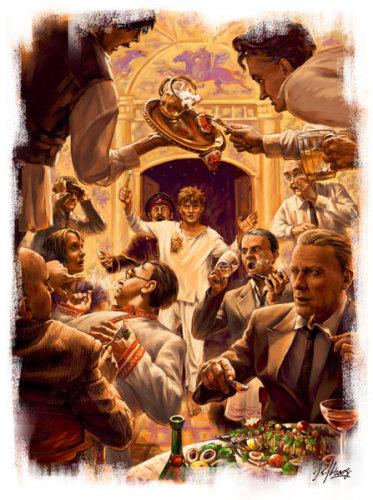
This is the beginning of a set of bizarre events that follow as Woland and his retinue settle into an apartment in Moscow. They sow the seed of chaos in the city, making use of the local theatre to do it. This is spread through the elite, the Writer's association, people connected to the theatre, and the audience who attended the show. Bizarre events like women losing their dresses acquired from the show, money, also from the show, turning useless and unusable mark the days following.
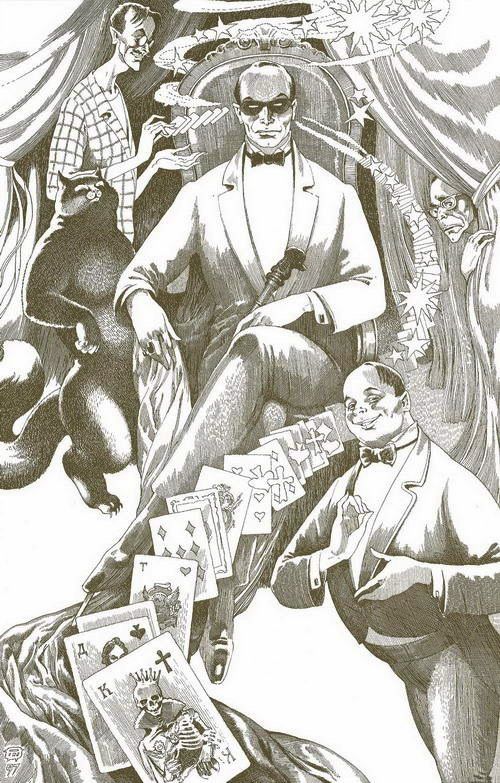
Bulgakov's portrayal of the Devil as Professor Woland was so realistic that I felt really uneasy. This story could happen in the real world at anytime and with the Devil up to his tricks, we would be as disbelieving as the people of Moscow in the book.
Through the book, I learnt the significance of the dollar at that time in Moscow, particularly that having money in dollars would make you an immediate suspect to authorities. The Professor's retinue makes use of this to control and put away people in their way. Further, I learnt of certain shops, which operated in secret, where the dollar could be used for trade. Even these people were not left alone by the retinue.

When I imagined reading about the devil, I believed it would all be flame, sin and evil tricks, but what plays out is a set of mind games to seed chaos. Driving people mad is one of the oldest tricks in the book and right up the Devil's sleeve. Bulgakov's depiction of the trickster and his companions feels frighteningly realistic and supernatural at the same time, esp. considering how the people, who have had direct dealings with the boss man himself, react and how they are in turn treated by the city and its authorities.
Master and Margarita
Interwoven throughout Satan's visit is the story of Yeshua as he is taken to his crucifixion after Pilate's judgement. But how is this story connected to the visit? At first, it only seemed to be something that Woland says to prove the existence of Jesus, but soon the author of the book about Pontius Pilate, the Master, is introduced. He is a patient at the very asylum, where Bezdomny was sent to. He sneaks into the poet's room at night and shares his tale.
The Master was in love with a beautiful young woman, Margarita, who was married at the time. However, she also fell in love with him and was ready to leave her husband for the Master. At the time, he was working on the book about Pilate, but when he sent it out to critics, they heavily criticized his work. This affected him deeply and he soon committed himself to the asylum without leaving a word to Margarita.
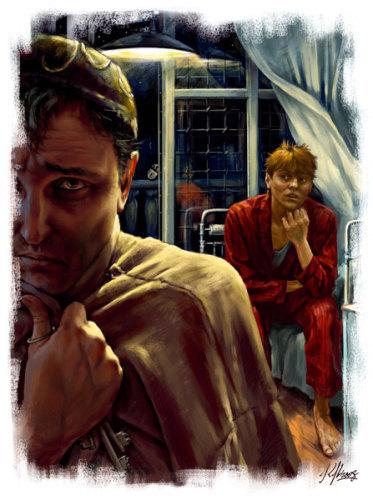
The heart-broken Margarita struggles to get over the Master, wondering if he was alive, but all the while holding out hope.
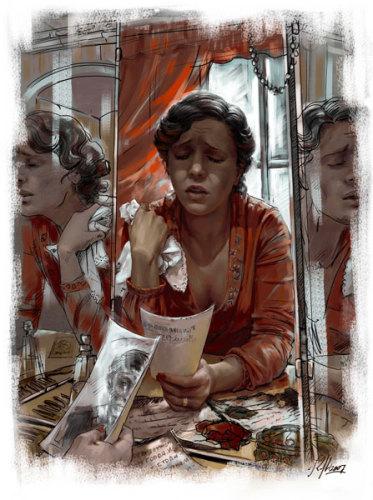
When she gets a proposal from Satan to attend a ball through Azazello with an assurance to get whatever she wishes for granted, she grabs at the opportunity to find a way back to the Master.
The ball is held by Satan every hundred years, where he is always accompanied by a woman, named Margarita. The ball is attended by all the people in history who have done very terrible crimes. This again seems to be Bulgakov's way of representing the relief given to evil-doers in the form of the ball. They are doomed forever, except for this one night every hundred years.
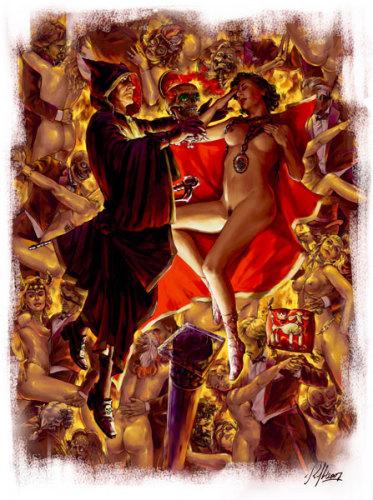
At the end of the ball, Margarita is granted her wish by Woland and she wishes to get back with the Master.
A Satisfying Conclusion
Woland made sure to compensate Margarita for her help in Satan's Ball. The Master and Margarita do have to leave this world in the end but they are compensated by a cottage in the other realm, where they can stay without any worries together forever.

Even Pontius Pilate gets his desire to have a conversation with Yeshua. His dog joins him as they walk away into the night.
My favorite character: Behemoth
My most favorite character in the book is Behemoth, the overly large cat with a wit to match his height. I was always excited when he entered the scene because he always created a humorous situation by passing a witty comment, blatantly lying with a straight face or downright having a shoot out with the police while dangling from a chandelier.
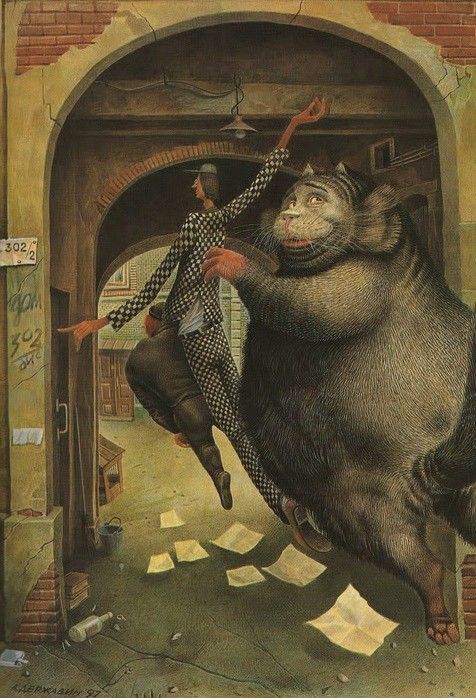
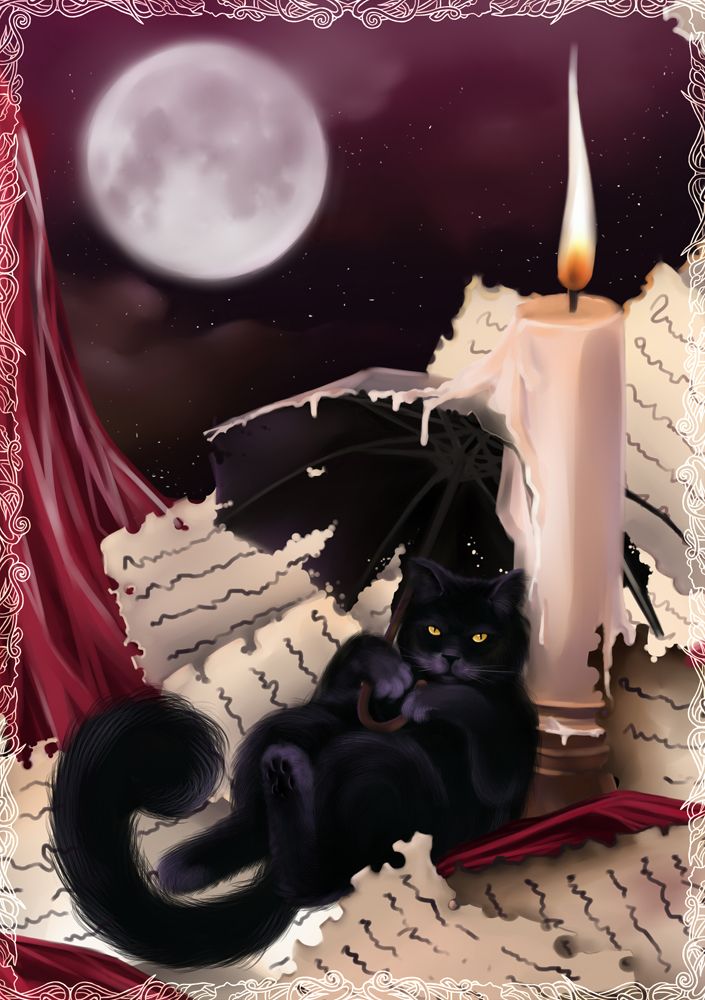
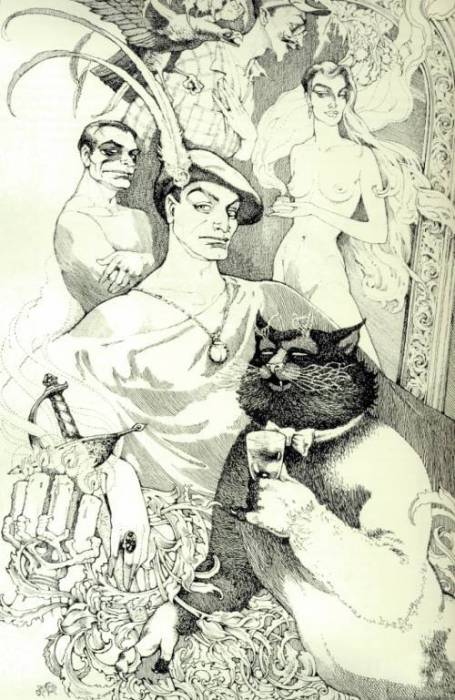
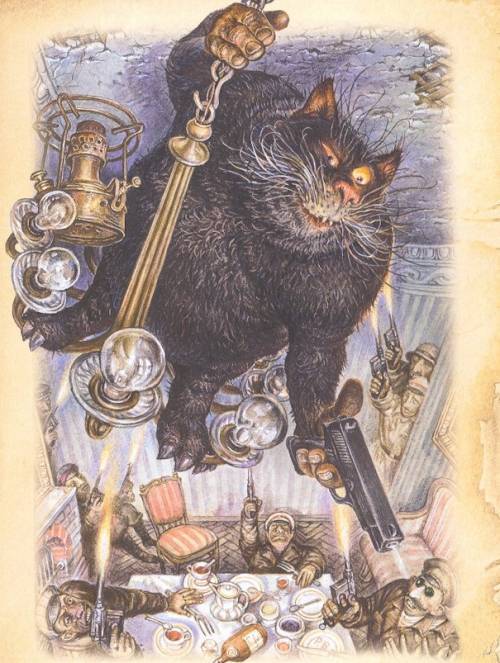
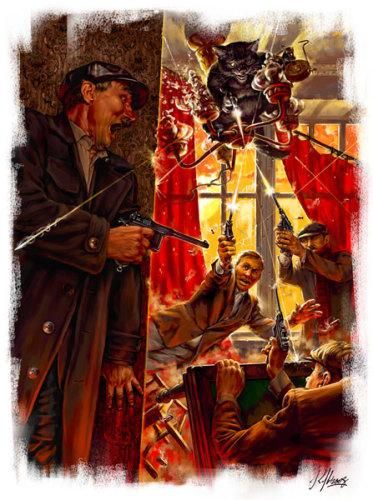
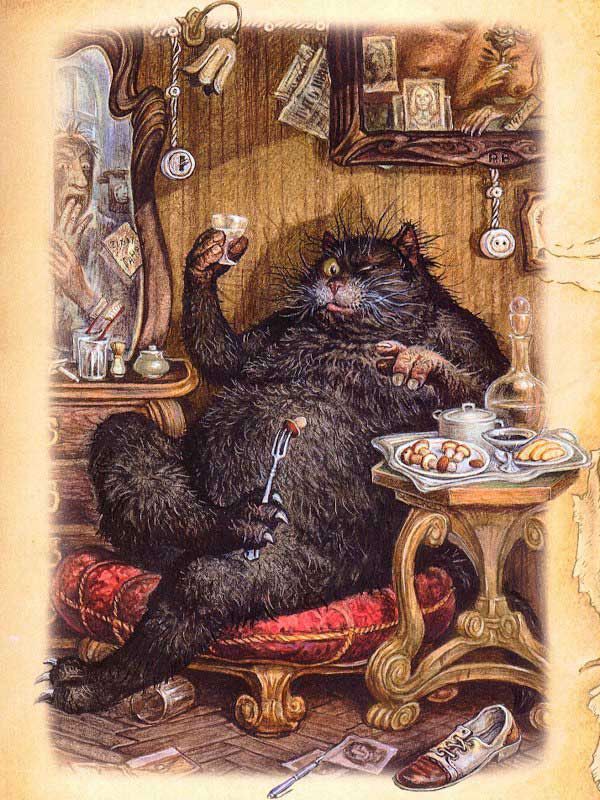
Epilogue
There is a conversation which Woland has with Levi Mathews near the end. Woland makes quite an interesting case.
Would you be so kind as to give a little thought to what your good would be doing if evil did not exist, and how the earth would look if the shadows were to disappear from it?
Indeed what would be the meaning of light without shadows.
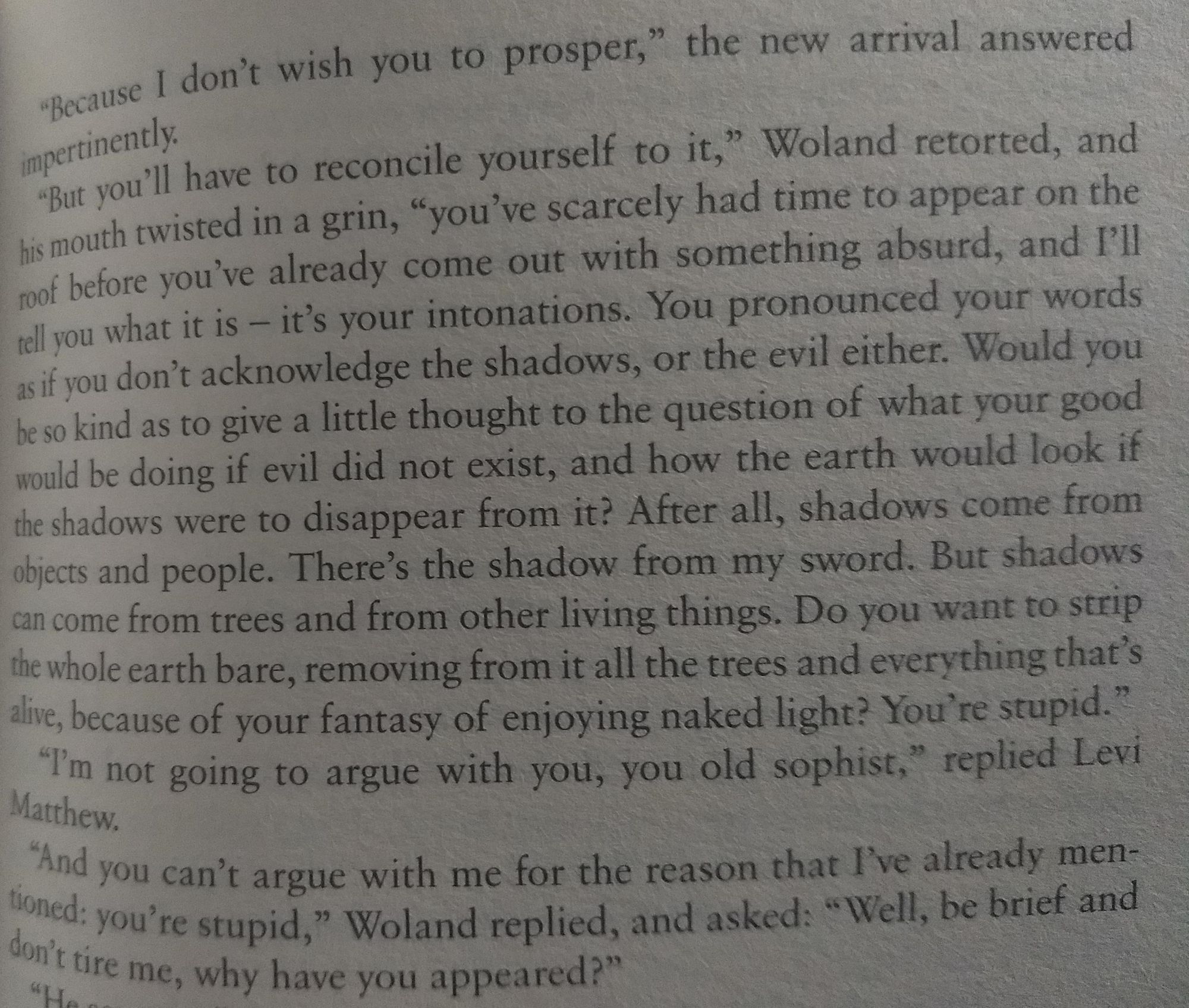
This end made me ponder on the way it all wraps up. I think it was in the post script notes that the translator talked about Goethe's Faust and how this book is influenced by it. Upon doing some research, I did find a lot of references to Goethe's work in this book including certain attributes of Woland as Satan.
The one quote that really struck me was:
"I am part of that power which eternally wills evil and eternally works good.”
― Johann Wolfgang von Goethe, Faust, First Part
It is strange how the Devil is perceived to be bad when it is his duty to punish evil, the ultimate good.
The illustrations were taken from this article by allgrach in livejournal.com. allgrach has compiled together the illustrations of Master and Margarita by various artists. Have a look at the link for more.